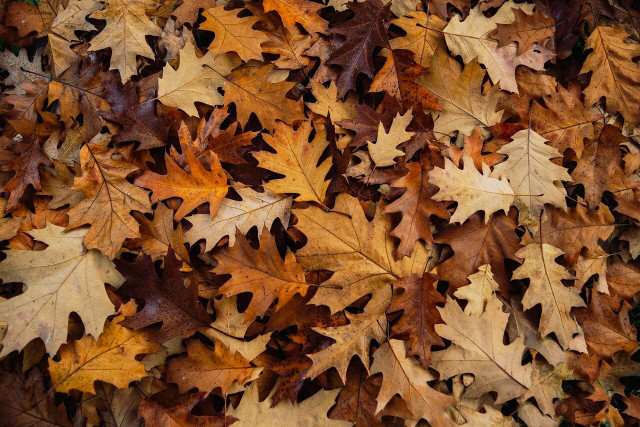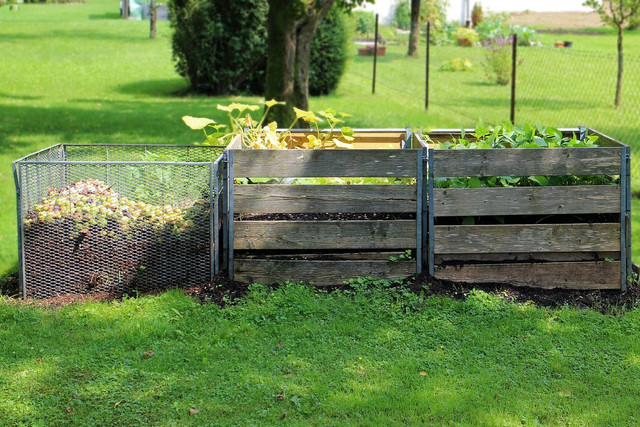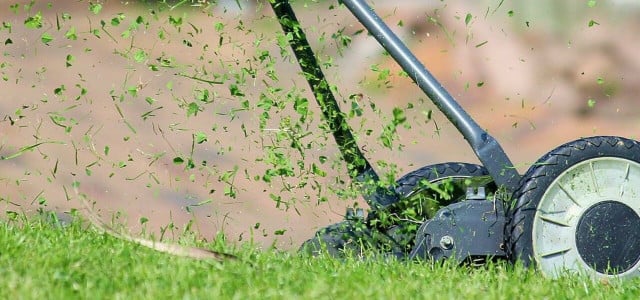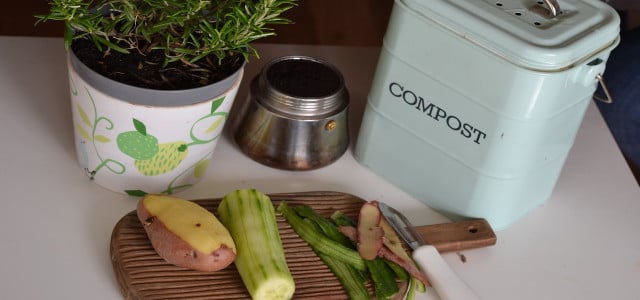Composting your grass clippings is a simple way to eliminate waste, add nutrients to your soil, and properly balance your compost pile for a healthier garden overall. Read on to learn how.
Composting grass clippings is a great way to add nutrients to your gardening soil, but it’s especially good as a tool to keep your compost pile balanced and prevent it from becoming moldy.
Composting requires maintaining a balance between “green” and “brown” sources. Green sources, like food scraps, coffee grounds and egg shells contribute protein and nitrogen to the pile, as well as encourage the multiplication of microorganisms. Brown sources, like leaves, sawdust, and paper are food sources for the microorganisms, add bulk to pile, and help keep it well-ventilated
Freshly mown grass clippings have high nitrogen content, which makes them excellent green sources. You can compost them in two ways: either by leaving them on your lawn directly, or by adding them to your compost pile. We’ll show you how.
Composting Grass Clippings On Your Lawn

(Foto: CC0 / Pixabay / wal_172619)
Using grass clippings as lawn compost is easy. Here’s what to do:
- Mow your lawn as usual, but do not attach the bag to catch the clippings.
- Allow the grass clippings to lay on the grass in thin layers, but do not let them become piles.
- The clippings will add moisture to the grass and soil below.
Note: To help make sure your grass is getting the most benefits from this natural fertilizer, it’s important to keep the length of your grass close to ideal height. In colder seasons, it’s best to keep your lawn about three inches high. In warmer seasons, the ideal height is two inches.
Composting Grass Clippings in a Bin or Pile



(Foto: CC0 / Pixabay / Antranias)
If you have a big enough backyard, composting in a bin or pile is ideal.
- Mow your lawn as usual, and attach the bags to catch the clippings.
- Combine the newly mown grass clippings into your compost pile with other “brown” sources such as paper or leaves.
- Ensure that air can circulate throughout the pile.
- Turn or stir the pile one to two times every week.
- Use the finished compost after it turns black, brown, and is crumbly.
Read on:
- Can You Compost Bread? Tips for Composting Bread?
- Can You Compost Tea Bags?
- Composting Meat: How to Dispose of Meat Scraps and Bones
Do you like this post?







